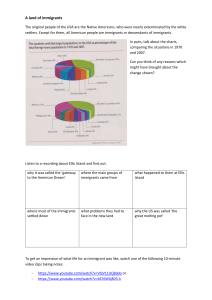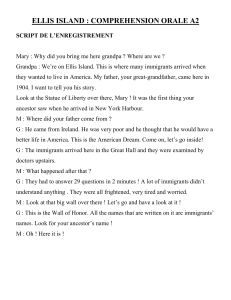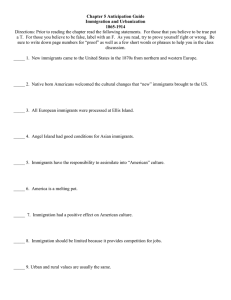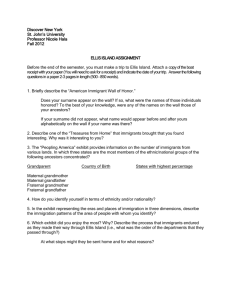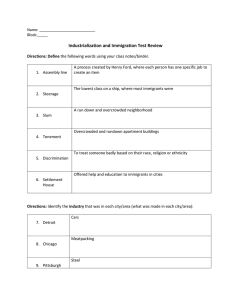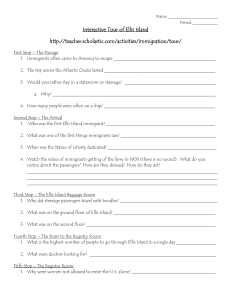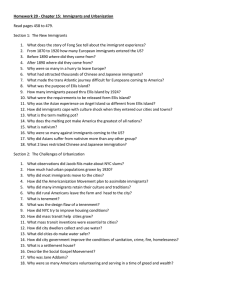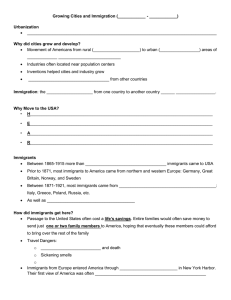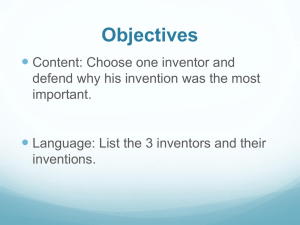Eng 99 WO p.35 – 36 Ellis Island: Dream and Nightmare
advertisement
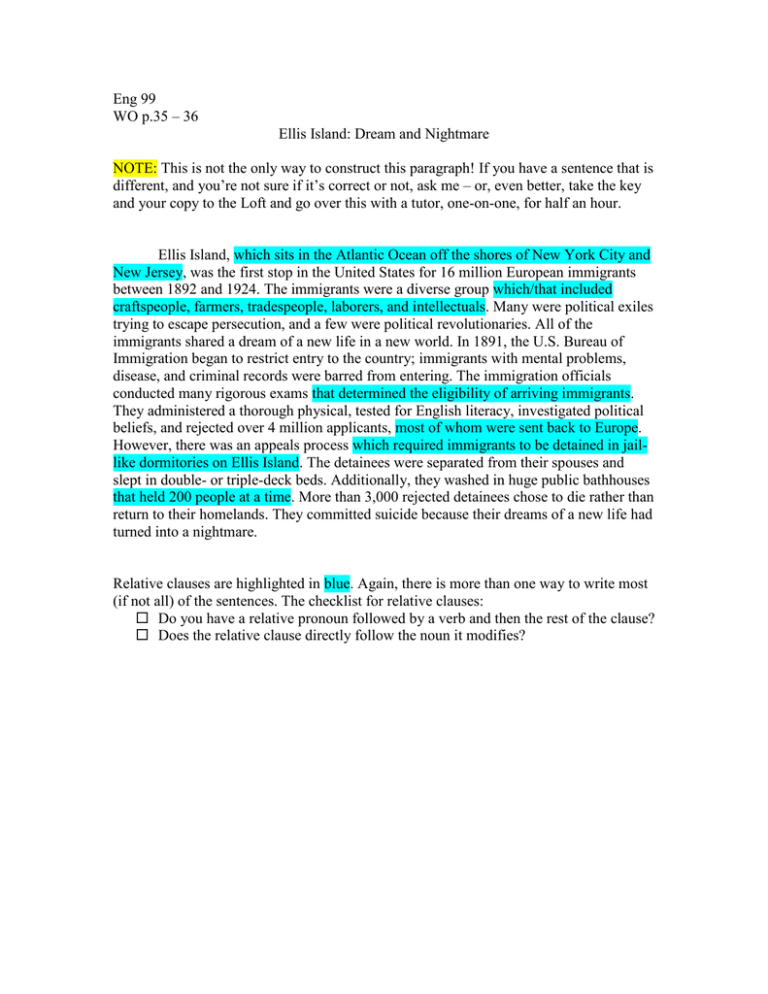
Eng 99 WO p.35 – 36 Ellis Island: Dream and Nightmare NOTE: This is not the only way to construct this paragraph! If you have a sentence that is different, and you’re not sure if it’s correct or not, ask me – or, even better, take the key and your copy to the Loft and go over this with a tutor, one-on-one, for half an hour. Ellis Island, which sits in the Atlantic Ocean off the shores of New York City and New Jersey, was the first stop in the United States for 16 million European immigrants between 1892 and 1924. The immigrants were a diverse group which/that included craftspeople, farmers, tradespeople, laborers, and intellectuals. Many were political exiles trying to escape persecution, and a few were political revolutionaries. All of the immigrants shared a dream of a new life in a new world. In 1891, the U.S. Bureau of Immigration began to restrict entry to the country; immigrants with mental problems, disease, and criminal records were barred from entering. The immigration officials conducted many rigorous exams that determined the eligibility of arriving immigrants. They administered a thorough physical, tested for English literacy, investigated political beliefs, and rejected over 4 million applicants, most of whom were sent back to Europe. However, there was an appeals process which required immigrants to be detained in jaillike dormitories on Ellis Island. The detainees were separated from their spouses and slept in double- or triple-deck beds. Additionally, they washed in huge public bathhouses that held 200 people at a time. More than 3,000 rejected detainees chose to die rather than return to their homelands. They committed suicide because their dreams of a new life had turned into a nightmare. Relative clauses are highlighted in blue. Again, there is more than one way to write most (if not all) of the sentences. The checklist for relative clauses: Do you have a relative pronoun followed by a verb and then the rest of the clause? Does the relative clause directly follow the noun it modifies?



